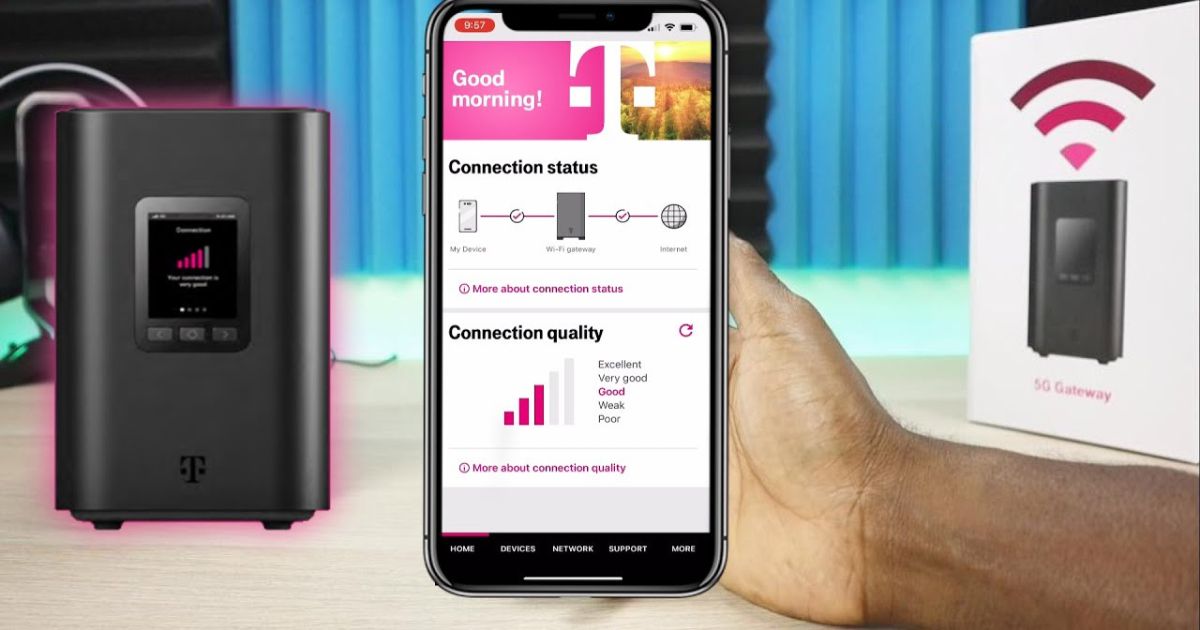The advent of 5G technology has introduced a new era of connectivity, characterized by lightning-fast speeds, ultra-low latency, and the ability to handle massive amounts of data.
As this technology becomes increasingly ubiquitous, terms like “5G UC” have entered the lexicon, leaving many consumers wondering: what does this mean?
This article delves into the meaning of 5G UC, its significance, and how it fits into the broader context of 5G networks.
Understanding 5G UC
5G UC stands for 5G Ultra Capacity, a term primarily coined by T-Mobile, one of the leading mobile carriers in the United States. It is a branding designation that highlights a specific subset of their 5G network.
Unlike the more foundational 5G, which typically operates on low-band frequencies, 5G UC refers to a more advanced deployment that uses a mid-band or millimeter-wave (mmWave) spectrum. These spectrums are capable of delivering significantly faster speeds and enhanced performance.
To break it down:
- 5G UC represents the parts of the 5G network that offer greater speed and capacity.
- It is designed to handle higher traffic volumes and deliver a superior experience compared to standard 5G.
- It typically encompasses the mid-band (e.g., 2.5 GHz) and high-band (mmWave) frequencies, crucial for unlocking the full potential of 5G.
Key Features of 5G UC
| Feature | 5G UC Performance | Standard 5G Performance |
|---|---|---|
| Frequency Spectrum | Mid-band and mmWave | Low-band |
| Speed | Up to 1 Gbps or higher | 50-100 Mbps |
| Latency | Ultra-low (<10 ms) | Moderate (20-30 ms) |
| Coverage | More localized (urban areas, hotspots) | Broad (rural and suburban areas) |
| Applications | High-demand use cases like AR/VR, smart cities | Everyday browsing, video streaming |
The differentiation in spectrum usage is critical. Low-band 5G offers extensive coverage but lacks the speed and capacity of 5G UC. In contrast, mid- and high-band spectrums balance speed and coverage, making them ideal for densely populated areas and data-intensive applications.
Why 5G UC Matters
The distinction of 5G UC is not just marketing fluff; it reflects the rapid evolution of wireless technology. Consumers and businesses alike are demanding more from their networks, with use cases that push the limits of traditional connectivity:
- Enhanced Mobile Experience: Users can download large files in seconds, stream 4K videos without buffering, and enjoy seamless gaming.
- Industrial Applications: Industries such as manufacturing, logistics, and healthcare benefit from the high reliability and low latency of 5G UC.
- Future-Ready Networks: 5G UC supports innovations like autonomous vehicles, augmented reality (AR), and the Internet of Things (IoT).
How 5G UC Differs Across Carriers
While T-Mobile popularized the term 5G UC, other carriers have comparable offerings with different branding:
- Verizon refers to its advanced 5G network as “5G Ultra Wideband” (5G UW).
- AT&T markets its high-speed 5G as “5G+.”
Although the branding varies, the underlying principle remains the same: delivering higher performance through advanced spectrum technologies.
What to Look for as a Consumer
When shopping for a new phone or service plan, understanding what 5G UC offers can help you make an informed decision:
- Device Compatibility: Not all phones support 5G UC. Check for devices with support for mid-band and mmWave frequencies.
- Network Availability: Coverage maps are crucial; 5G UC may not yet be available in your area.
- Use Case Needs: If you are a heavy gamer or regularly use AR/VR applications, 5G UC can significantly improve your experience.
The Road Ahead for 5G UC
5G UC is more than a step forward in network technology—it is a glimpse into the future of connectivity. As carriers continue to expand their 5G footprints and invest in spectrum upgrades, 5G UC will likely play a pivotal role in enabling smarter cities, more efficient industries, and a truly connected world.
With competition among carriers intensifying, the race to bring high-speed, high-capacity networks to the masses is accelerating. For consumers, this means better service, faster speeds, and a wealth of opportunities to tap into the digital economy.
Conclusion
In conclusion, 5G UC represents the pinnacle of current 5G deployments, showcasing what’s possible when cutting-edge technology meets consumer demand. Whether you’re a tech enthusiast or just someone looking to improve their mobile experience, understanding 5G UC is a crucial step in navigating the new age of connectivity. For more 5g Internet information check the internetgainer.



